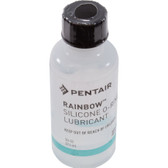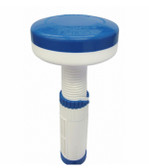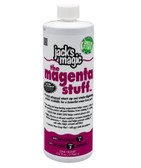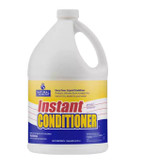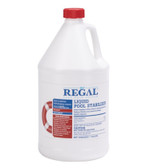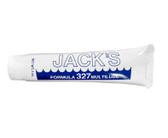 Loading... Please wait...
Loading... Please wait...
- Home
- CHEMICALS
Categories
Popular Brands
- AQUA TROL
- CLORMATIC
- COMPUPOOL SALT CELLS
- CUSTOM MOLDED PRODUCTS
- DEL OZONE POOL OZONATORS
- DEL OZONE SPA OZONATORS
- DEL OZONE/SALT SYSTEM
- DELTA UV ULTRAVIOLET SYSTEMS
- E-Z CLOR FEEDER
- ECOMATIC SALT CELLS
- GECKO IN.CLEAR BROMINE SYSTEM
- HAYWARD
- HYDROTECH, GUARDEX, BIOLAB BROMINATOR
- JANDY AQUAPURE
- KING
- LEISURE TIME
- MA CHLORINATOR
- MAZZEI VENTURI INJECTORS
- OLYMPIC CHLORINATOR
- OZONATOR ACCESSORIES
- OZONE JOE'S OZONATORS
- PARAMOUNT OZONATOR
- PENTAIR
- PERMA-CAST TECHNODE
- POLARIS
- PROZONE
- RAINBOW FEEDER ACCESSORIES
- RAINBOW FLOATING FEEDERS
- RESILIENCE
- ROLA CHEM
- SPA FROG
- STENNER
- ULTRA PURE AIR FLOW & TEST KITS
- ULTRA PURE POOL OZONATORS
- ULTRA PURE SPA OZONATORS
- UNICLOR CHLORINE GENERATOR
- WATERCO WATERKING CHLORINATOR
- WATERWAY CLEARWATER CHLORINATORS
- WATERWAY CLEARWATER FEEDER
- ZINC SACRIFICIAL ANODES
- ZODIAC
CHEMICALS
Swimming is a great way to relax, have fun, and stay fit. A well-maintained pool or spa can offer countless hours of enjoyment. However, behind that refreshing blue water lies an intricate balancing act of chemistry.
From sanitizing agents like chlorine to balancing chemicals that keep pH levels in check, managing your pool or spa's water quality is crucial for ensuring the safety and longevity of your equipment.
Whether you've just installed an above ground pool in your backyard or are the proud owner of a luxurious spa, you'll need to understand the art and science of pool and spa chemicals.
In fact, even if your pool is cloudy, but the chemicals are fine, there's likely something you might be missing out on. Fear not, though.
This guide is here to help you navigate through the intricacies of swimming pool chemicals, explaining everything from pool opening chemicals to the role of salt cells in your pool and even how a pool Ozonator functions.
We aim to enhance your understanding of pool and spa maintenance, allowing you to maximize your aquatic leisure.
Why Do You Need Pool and Spa Chemicals?
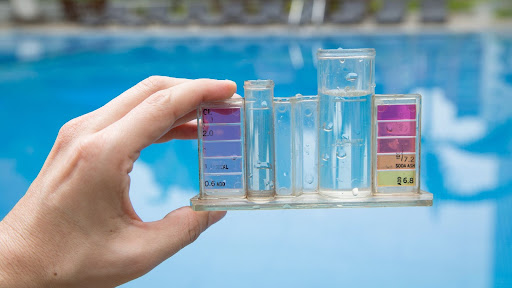
You might be asking, "My pool is cloudy but chemicals are fine. What's happening?" Even if the chemical levels are appropriate, other factors such as filtration problems, environmental debris, and the pool's usage frequency can impact clarity.
That's why chemical maintenance goes hand in hand with regular pool cleaning and proper circulation.
Clean, clear, and hygienic water is the cornerstone of any swimming pool or spa. The water is not just about providing you with a refreshing swim; it's also about safeguarding your health. Here is where pool and spa chemicals step in.
In its natural state, water is a perfect breeding ground for various types of bacteria, viruses, and algae. These microorganisms can pose serious health risks, ranging from minor skin irritations to more severe illnesses.
Pool and spa chemicals, especially sanitizers like chlorine and bromine, play a vital role in eliminating these pathogens, ensuring the water is safe for you and your loved ones to enjoy.
Moreover, the balance of your pool or spa's water is delicate. When imbalanced, pH, alkalinity, and calcium hardness levels can lead to various problems.
They can cause everything from cloudy water, even when your pool chemicals seem fine, to corrosive water that can damage your pool's structure and equipment.
Remember, a well-maintained pool or spa is more than just about aesthetics. It's about protecting the users and preserving the longevity of your investment. This is where swimming pool chemicals play a significant role.
Chemicals, however, are not a one-size-fits-all solution. Different pools and spas require different types and amounts of chemicals. For instance, salt cell pools utilize salt cells to produce chlorine.
This process is a different approach compared to traditional chlorinated pools. A pool Ozonator, on the other hand, introduces ozone into the water, providing an extra layer of sanitization.
Types of Pool and Spa Chemicals
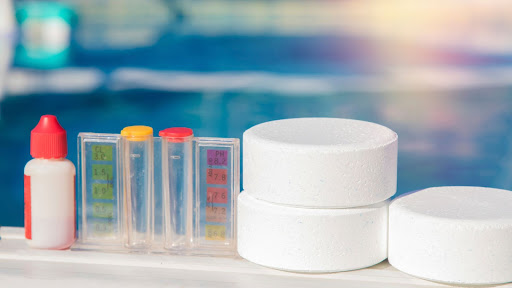
Understanding pool and spa chemicals can seem daunting at first, especially when confronted with many products in the market. Let's simplify this by categorizing them into primary types and exploring their roles and functions.
- Sanitizers: Sanitizers are the primary chemicals that keep the pool clean and free from harmful microorganisms. Chlorine and bromine are the most commonly used sanitizers. Salt is converted into chlorine in a salt cell pool using an electrolyzer. However, salt (sodium chloride) is converted into chlorine in salt cell pools using an electrolytic process in the salt cells. The chlorine produced then acts as the sanitizer.
- Shock Treatments: Also known as pool opening chemicals, shock treatments are essentially sanitizers but in higher doses. They are used to rapidly increase the chlorine or bromine level in the pool or spa, effectively 'shocking' the water. This process helps eliminate algae and contaminants that sanitizers at normal levels might not completely destroy.
- pH Balancers: Balancers control the pool water's pH, alkalinity, and hardness levels. Keeping these levels balanced is crucial to maintain the sanitizer's effectiveness and the water's clarity. Water pH is a measure of acidity or alkalinity. The ideal pH for pool or spa water is slightly alkaline, between 7.2-7.6. pH balancers help achieve this level. If the pH is too high, water can cause scaling and cloudiness, reducing the sanitizer's effectiveness. If too low, it can cause corrosion and eye irritation.
- Alkalinity Balancers: These work alongside pH balancers. Alkalinity is a measure of water's ability to resist changes in pH. Maintaining proper total alkalinity prevents rapid pH swings, helping to keep your water balanced and clear.
- Calcium Hardness Balancers: Calcium hardness refers to the amount of dissolved calcium in water. Too little, and your water can become corrosive, damaging your pool's surfaces and equipment. Too much, and it can cause scaling and cloudiness.
- Algaecides: Algaecides combat algae growth. Algae can cause slippery surfaces, clog filters, and turn your water green. Regularly shocking, your pool can control algae, but for persistent problems, algaecides can be a helpful addition.
- Clarifiers: These are used when your pool is cloudy, but the chemicals are fine. Clarifiers clump tiny particles together, enabling the filter to trap them more efficiently.
- Specialty Chemicals: These include salt for salt cell pools, ozonators for additional sanitization, and various other chemicals for specific needs. An Ozonator, for instance, uses electricity to create ozone gas, which destroys bacteria and viruses when dissolved in pool water. The ozone then reverts to oxygen, leaving no harmful residues behind.
- Importance of Chemical Maintenance in Your Above Ground Pool
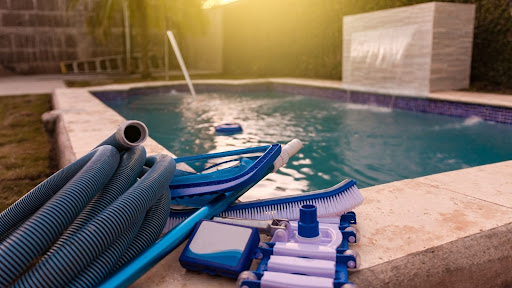
Above ground pools are a popular choice due to their cost-effectiveness and ease of installation. However, their maintenance, specifically chemical maintenance, requires special attention.
While the basic principles remain the same, certain aspects can be more challenging due to the pool's structure and exposure.
For starters, above-ground pools often have less water volume than their in-ground counterparts. This means that any changes in water chemistry—such as pH levels, alkalinity, or sanitizer concentration—can occur more rapidly.
Regular testing and adjustment become paramount. While it might seem like a hassle, regular monitoring can help you avoid bigger issues like algae blooms or cloudy water, even if your pool chemicals seem fine.
Secondly, above-ground pools tend to be more exposed to environmental elements, especially sunlight. UV radiation from the sun can degrade chlorine, reducing its sanitizing effectiveness.
Using stabilizers, also known as a conditioner or cyanuric acid, can help shield your chlorine from UV radiation, thus extending its lifespan. This is a crucial aspect often overlooked in pool chemical management.
Thirdly, in above ground pools, circulation might not be as efficient as in in-ground pools due to the equipment setup. This can lead to 'dead spots' where water doesn't circulate well, causing issues like localized algae growth.
To combat this, ensure your return jets are positioned strategically to promote effective circulation. If you're using a salt cell pool setup, proper circulation also ensures that the chlorine generated is distributed evenly throughout the pool.
Similarly, if you are using an Ozonator, efficient circulation ensures the ozone gas is well distributed, allowing it to sanitize effectively. Remember, an Ozonator is not a stand-alone sanitizer but is used in conjunction with other sanitizers like chlorine.
Lastly, consider investing in a pool chemical feeder. These devices automate the chemical dosing process, removing some of the guesswork and reducing the chance of human error.
They are available for both chlorine and bromine pools and can be particularly useful for above-ground pools where chemical balance can change quickly.
Understanding these nuances about above ground pool chemical maintenance can help you keep your pool in top condition, ensuring it remains a source of joy and not a source of stress.
Pool Chemical Feeders
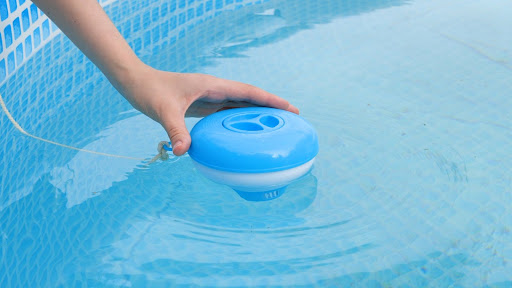
Pool chemical feeders are devices that steadily dispense sanitizer into your pool or spa water. If you're wondering how these feeders fit into a salt pool cells system, they may not be necessary for such setups.
Salt cell systems generate their own chlorine, but these systems still benefit from automated pH and alkalinity adjusters to maintain ideal water balance.
When it comes to managing pool and spa chemicals, consistency is key. Keeping your water balanced requires regular testing and adjustments. This is where pool chemical feeders can be a game-changer.
Pool chemical feeders, also known as automatic chlorinators or brominators, are devices that steadily dispense sanitizer into your pool or spa water. They do this by holding a large quantity of either chlorine or bromine tablets and allowing water to flow over them.
As the water flows, it dissolves a small amount of the sanitizer and carries it into the pool or spa.
There are several advantages to using a pool chemical feeder. First and foremost, they ensure a consistent level of sanitizer in your pool. Instead of adding sanitizer manually, which can lead to fluctuations in the level, the feeder maintains a steady supply.
This constant sanitation reduces the risk of algae blooms and other water quality issues.
Secondly, they offer convenience. Instead of handling chemicals daily, you can fill the feeder with enough sanitizer to last for a week or more, depending on the size of your pool and the feeder. This is especially useful if you're busy or if you're going away for a short period.
It's also worth noting that these devices can contribute to the safety of your pool maintenance routine. Handling pool chemicals, especially chlorine, can pose risks if not done correctly. With a chemical feeder, you minimize the need for direct contact with these substances.
If you're wondering how these feeders fit into a salt cell pool system, they may not be necessary for such setups. Salt cell systems generate their own chlorine, but these systems still benefit from automated pH and alkalinity adjusters to maintain ideal water balance.
In the same vein, if you're using an Ozonator in your pool, remember that while it helps with sanitation, it doesn't replace the need for a residual sanitizer like chlorine. In such cases, a pool chemical feeder ensures that there is always a sufficient level of sanitizer in the water.
Just like any other pool equipment, chemical feeders require regular maintenance. Make sure to clean it periodically to prevent buildup and ensure it functions optimally.
A pool chemical feeder is one of many tools that can help make pool maintenance easier and more efficient.
Big Brands in Pool and Spa Chemicals
Certain brands have established themselves as leaders in the world of pool and spa chemicals due to their commitment to quality, effectiveness, and innovation. These brands offer a range of products designed to simplify the process of pool and spa maintenance while ensuring the highest water safety and clarity standards.
-
Astral
Astral is a well-regarded brand in the pool and spa industry, known for their advanced pool equipment and comprehensive range of quality pool and spa chemicals. From basic sanitizers and balancers to specialized treatments, Astral provides reliable solutions to help maintain a clean, clear, and healthy swimming environment.
Their products are designed to cater to a variety of pool types and sizes, ensuring that every pool owner can find the right product for their specific needs.
-
BioGuard
Known for its quality and reliable products, BioGuard offers a comprehensive line of pool and spa chemicals. BioGuard caters to a wide range of pool and spa needs, from sanitizers and oxidizers to balancers and algaecides.
-
Pentair
Pentair provides innovative water solutions, including a range of pool and spa chemicals. They also manufacture pool equipment, including salt cell systems and pool chemical feeders, making them a one-stop shop for all your pool and spa needs.
-
Hayward
Hayward is another trusted brand in the pool industry, renowned for their efficient pool equipment and high-quality pool and spa chemicals designed to keep your water sparkling clean and balanced.
-
Clorox Pool&Spa
A household name, Clorox offers a line of products specifically designed for pool and spa care. Their products are easily accessible and user-friendly, making pool maintenance simpler for pool owners.
-
Natural Chemistry
If you're looking for eco-friendly options, Natural Chemistry offers a variety of 'green' pool and spa products. Their range includes everything from natural clarifiers to enzyme-based cleaners.
-
Zodiac
Renowned for its range of pool equipment, Zodiac also offers a line of high-quality pool and spa chemicals. They're particularly known for their saltwater pool products.
-
Waterway
Known for their high-quality pool and spa equipment, Waterway also offers a range of reliable pool and spa chemicals to maintain a healthy and balanced water environment.
When choosing a brand, consider the specific needs of your pool or spa. If you have a salt cell pool, ensure the brand offers products compatible with saltwater systems. Similarly, if you use an Ozonator, ensure the chemicals you use work in harmony with your Ozonator.
Maintenance and Replacement of Pool Equipment
Taking care of your pool or spa doesn't stop at maintaining the right chemical balance. It also involves regular pool equipment maintenance and knowing when to replace parts.
Salt Pool Chlorinator Cells
These cells are the heart of any saltwater pool system. They facilitate the electrolysis process that produces chlorine from salt. Over time, however, the scale can build up on the cell plates, reducing their efficiency.
Regular cleaning, as per the manufacturer's instructions, can prolong the life of your salt cell. Despite this, salt cells will eventually wear out and must be replaced, typically every 3-7 years, depending on usage and care.
Ozonator Bulbs
Ozonators use special bulbs or corona discharge (CD) chips to create ozone. The lifespan of an Ozonator bulb depends on the model and usage, but typically, they need to be replaced every 2-3 years. If you notice a decrease in water quality or clarity, it may be a sign that your Ozonator bulb needs replacing.
Ozonators for pools and spas use ozone gas to kill bacteria and other pathogens. The process involves producing ozone (a form of oxygen) and mixing it into the pool or spa water, where it can do its work.
However, an Ozonator for the pool doesn't replace the need for a residual sanitizer like chlorine. That's why even if you have a spa Ozonator, you must maintain the correct chemical balance.
Pool Chemical Feeders
Regular cleaning and inspection of your chemical feeder can help spot issues early. Check for blockages, signs of wear and tear, and ensure the feeder dispenses the right amount of chemicals.
Typically, feeders are durable and may only require the replacement of parts such as O-rings and seals over their lifespan.
Filters
A clean filter is crucial for clear water. How often you need to clean your filter depends on the type (sand, cartridge, or DE) and your pool usage.
A general rule is to clean it whenever the pressure gauge reads 8-10 psi over the starting level. Eventually, sand and DE media will need replacing, and cartridge filters will wear out and need a replacement.
Test Kits/Strips
These are crucial for maintaining water balance. Ensure your kit or strips are not expired, which can lead to inaccurate readings. It's advisable to replace your test kit reagents or strips every year.
Regularly maintaining and replacing your pool equipment ensures that your pool or spa remains a safe and enjoyable place for everyone.
Whether you have a simple setup or a more complex system with a salt cell pool or Ozonator, proper care is key to extending the lifespan of your equipment and getting the most out of your pool or spa.
Conclusion
Managing pool and spa chemicals is an intricate but essential task, demanding consistent monitoring and adjustments. Maintaining a proper chemical balance is critical, whether it's an in-ground or above-ground pool. Employing specialized equipment like pool chemical feeders, Ozonators, or salt cell systems can simplify this task.
The successful upkeep of your pool or spa isn't just about using chemicals; it also involves understanding your pool or spa's specific needs and regular equipment maintenance. Brands like BioGuard, Pentair, Clorox Pool&Spa, Natural Chemistry, and Zodiac provide an array of top-quality products to cater to all pool and spa requirements.
With the right knowledge and tools, maintaining a clean, safe, and inviting pool or spa is entirely achievable. When in doubt, always consult with a professional.
Frequently Asked Questions
Over the years, pool and spa owners have consistently asked certain questions regarding pool and spa chemicals. Here are some of the most frequently asked ones, along with their answers.
1. Why is my pool cloudy even though my chemicals are fine?
Cloudiness can result from various factors, such as inadequate filtration, high calcium hardness levels, or the presence of microscopic debris that your filter cannot trap.
Clarifiers can help by coagulating these tiny particles into larger ones, allowing your filter to trap them more efficiently. Regularly backwashing or cleaning your filter can also help.
2. What chemicals do I need for my above ground pool?
The basic chemicals needed for an above ground pool are similar to those for an in-ground pool. These include a sanitizer (chlorine or bromine), a pH balancer, an alkalinity balancer, and a calcium hardness balancer.
You might also need a shock treatment, an algaecide, and a clarifier, depending on the condition of your water. Regular testing is crucial to determine which chemicals and in what amounts are needed.
3. How do I open my pool with the right chemicals?
Opening your pool involves several steps, but regarding chemicals, it usually involves first balancing your pH, alkalinity, and calcium hardness. You shock your pool once these levels are balanced to eliminate potential algae or bacteria. You might also need to add a metal sequestrant to prevent metal staining if your water source contains heavy metals.
4. How does a salt cell pool work?
A salt cell pool uses a process known as electrolysis to generate chlorine. Salt (sodium chloride) is added to the pool water, and this salty water then passes through a salt cell in the pool's filtration system.
The cell applies an electrical charge, which separates the salt into its two components: sodium and chlorine. The chlorine then sanitizes the pool, after which it combines with sodium again, ready to be reused.
5. Can I use an Ozonator in my pool?
Yes, an Ozonator can be used in your pool as an additional layer of sanitation. It produces ozone gas that, when introduced to water, can kill bacteria and viruses. However, an Ozonator does not replace the need for a residual sanitizer like chlorine or bromine in your pool.


